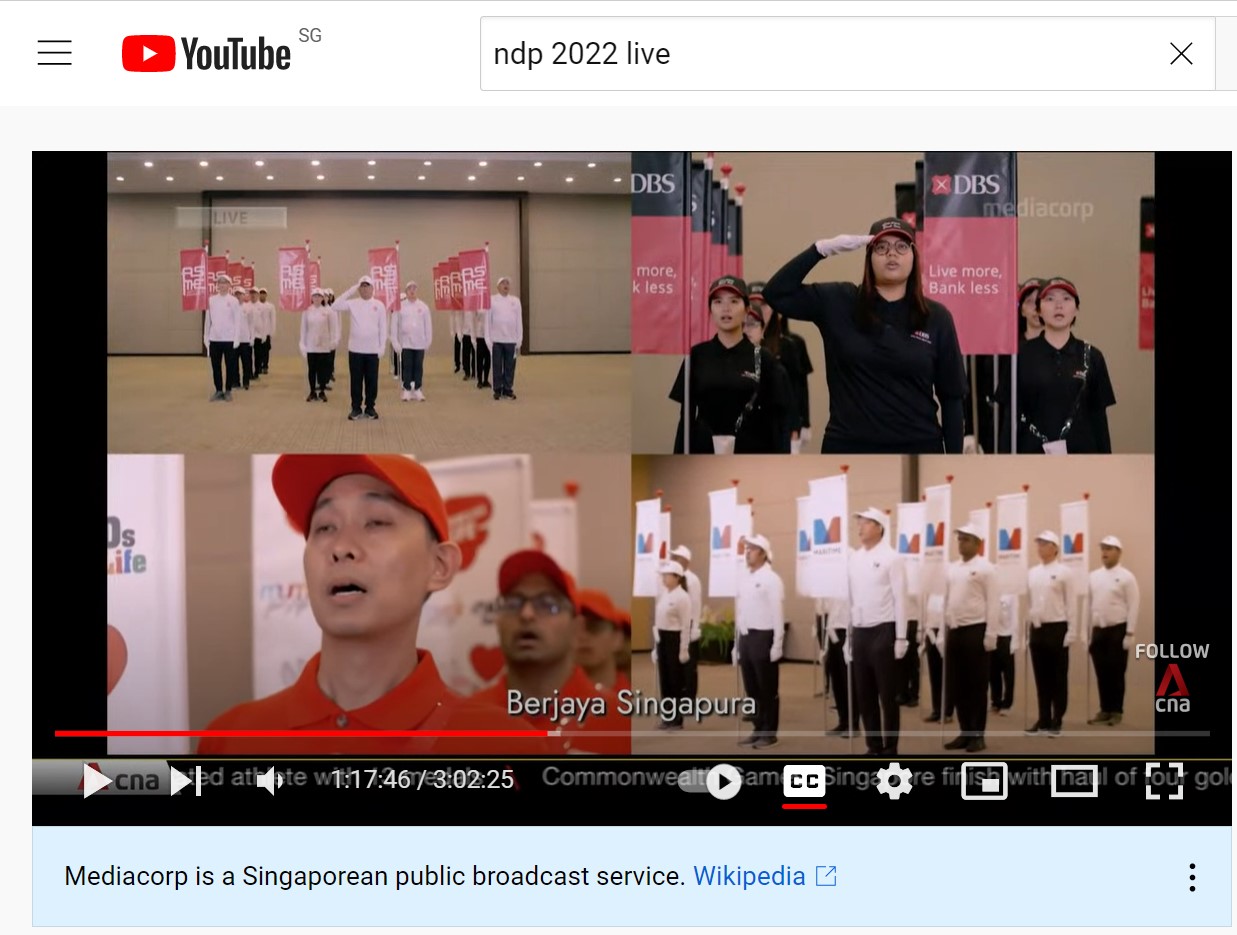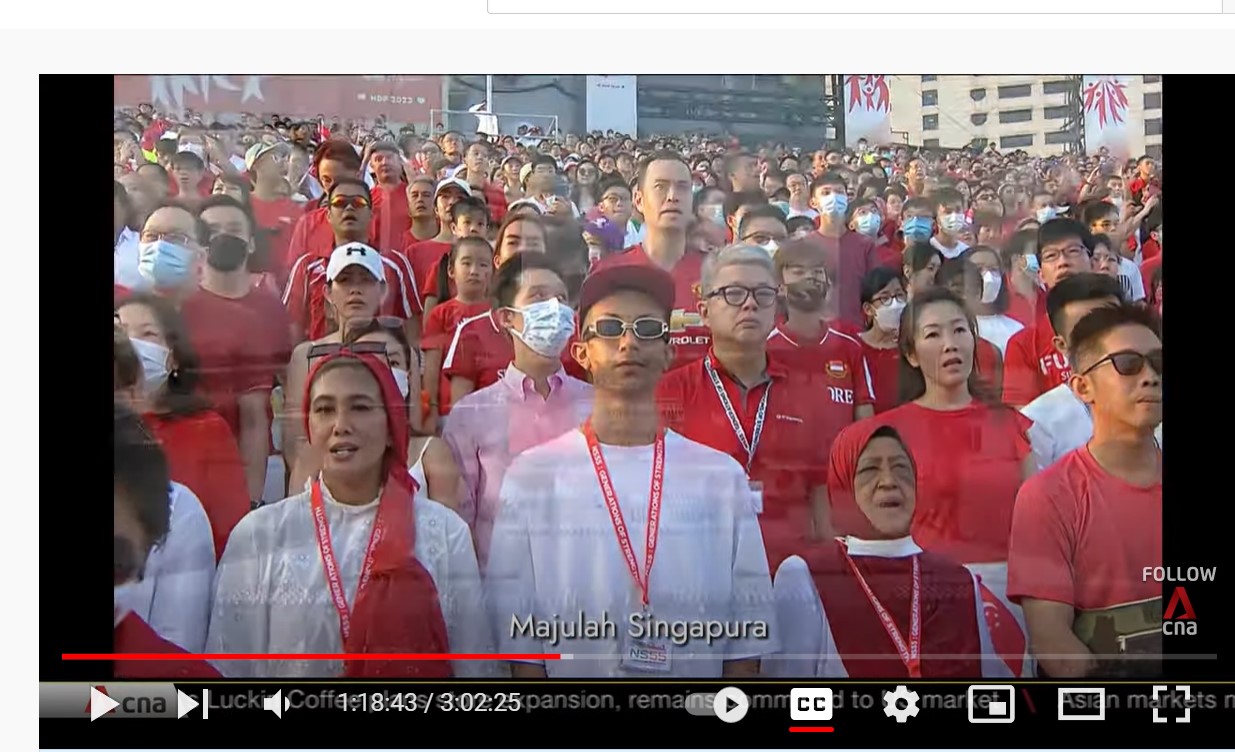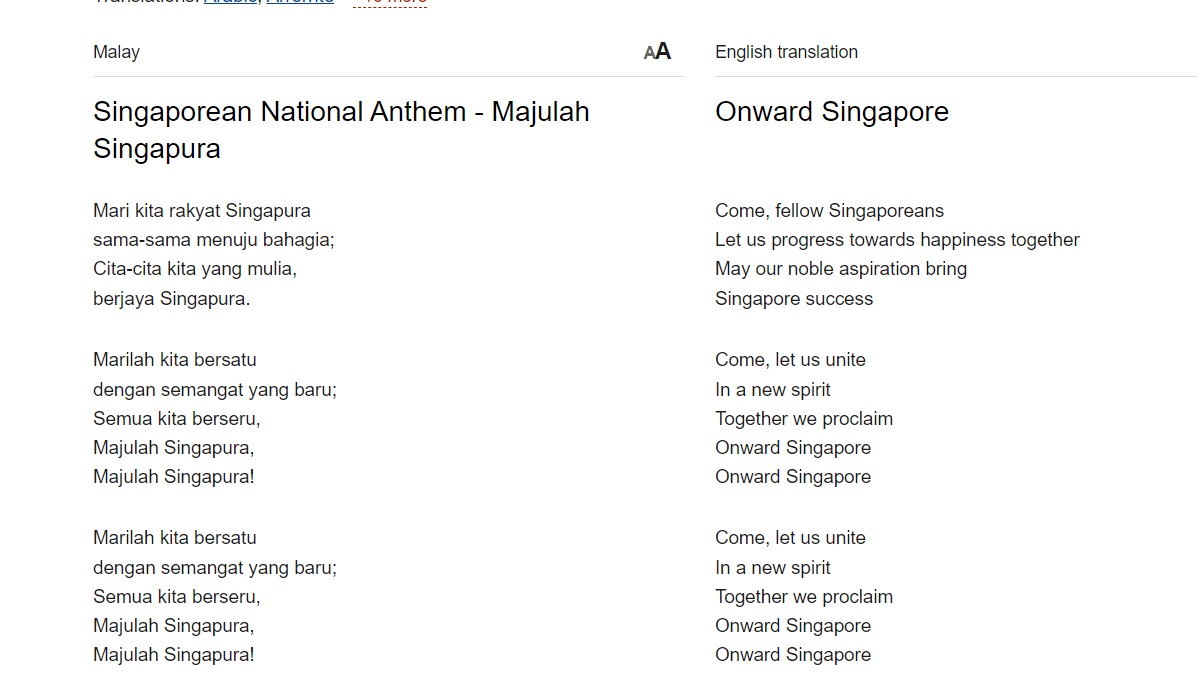It was Singapore’s 57th birthday yesterday (August 9). Majulah Singapura! As always, there was a spectacular parade, which as per usual was a chance for the military to show off its latest toys (our toys are considered the best in the region) and to perform great feats of marching (A former Canadian army officer described our marching as “perfect”) and there are other feats of song and dance. The evening inevitably ends with fireworks.
I grew up watching the parade, and I guess the parade became even more significant to me when I moved back from the UK to serve national service. This was what you would call my first encounter with “real” Singapore, and although I am terrible at drill (I don’t have a sense of rhythm and I have an even worse sense of “marching in a group”), there is something incredibly special about hearing drill commands and watching other people do the drill.
However, whilst I find it significant to watch the military portion of the parade, I have felt the need to question the purpose of National Day. In a way, National Day has become something like Valentine’s Day. Why do you need a special day to be reminded to love your country when you should be loving your country every day?
Although I try to avoid criticising the parade itself (I know how hard the contingents work to put on a good show), I do question why we need a grand parade to show that we love the country. I, like everyone else holding a little red passport, should feel an emotional connection to the country regardless of whether we have a parade or not.
The issue of “feeling Singaporean” has become especially pertinent in the last two decades. New arrivals from other parts of Asia have gotten many of us to ask ourselves about what our nationality means to us. I have said it many times before, Singapore seems to be the only place better loved by people from elsewhere than the native-born. I live it.
My Vietnamese wife thinks Singapore is heaven on earth and spends her days telling me that I need to do more to keep the world’s best government happy (pay more taxes). My daughter, who is a naturalised Singaporean, accepts that it’s easier to travel the world on a Singapore passport when compared to a Vietnamese one, but does not seem to have an emotional connection to the place.
I get why many of our foreign arrivals love the place. As I have often been reminded by people from America and Western Europe – Singapore is clean, green, safe, and rich. What is there not to like? While I see all these things, I ask myself if it’s possible to be drawn to the place even if it was not all these things.
I cannot explain it, but I feel it, especially when the National Anthem is played. I am part of “gen-x” or the generation born after 1965. I am part of a generation that has never known Singapore as anything other than an independent, sovereign state. The only national anthem I have ever known is “Majulah Singapura”.
This was the national anthem that I sang when I went to school. By comparison, my mother, who is a “boomer” sang “God Save the Queen” when she was at school in Singapore (When Singapore was a Crown Colony).
While I am from the generation that has only known “Majulah Singapura” as a national anthem, I am also of the generation where Malay ceased to be part of the common language of the streets. I speak English, which is the working language of Singapore. If push comes to shove, I can communicate in Mandarin and Cantonese (Mandarin being the language our first Prime Minister said defined Chinese and Cantonese being what I spoke to my paternal grandma in). Malay, our national language, has, for our Chinese majority society, become the language for drill commands in the army.
So, I have utterly no idea of what “my” national anthem means. I only knew that “Majulah Singapura” only meant “Onward Singapore” when I was well into my thirties. As far as I know, there is an “Onward Singapore” and a reference to “Nanyang” which, as far as I know, is the reference to a Chinese majority island in Southeast Asia. Other than that, I have utterly no idea what my national anthem means.
Yet, while I do not know what my national anthem means, I would not want it to be otherwise. While I may not know what the lyrics of “Majulah Singapura” mean, I feel a connection to the very lyrics of the National Anthem. I guess the connection you feel to the nation is not something that can be explained rationally, but it’s part of you. I do not think I am the only one who feels this way.




I remember there was once a discussion about changing the National Anthem to English. It felt like a violation. As one of my good friends (who is local Tamil) said, “My national anthem is in Malay. You change my national anthem over my dead body.” Here’s an English translation of “Majulah Singapura.”
I have argued that change is constant. Cultures change, and we should not be afraid of how things evolve. You cannot expect the demographics of Singapore in 2022 to be the same as the demographics in 1965. The aspirations of people in 2022 should have evolved away from the aspirations and needs of 1965.
However, there are certain things that are part of us, and we should accept that too.
Majulah Singapura is a part of us. Just as I cannot tell you what the words mean, I can tell you that hearing the national anthem gives me a feeling of belonging to the place. The technocrats need to understand that our social fabric is based on feeling as much as it is on technicalities.
Being Singaporean is not something that can be measured, but it is something that can be felt.
A version of this article first appeared at beautifullyincoherent.blogspot.com

